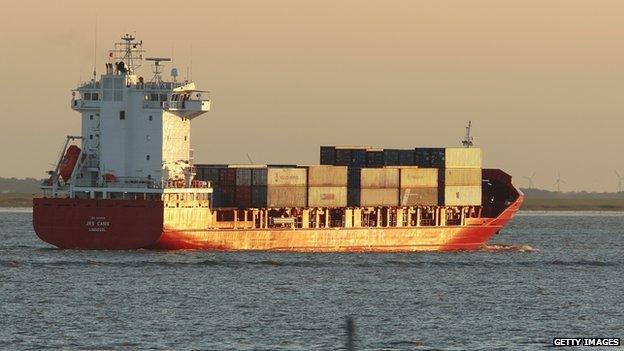What is Baltic saying about global slowdown?
- Published

Uncertain waters - rates to ship dry bulk goods have collapsed
Let's start by owning up: I am last with the news.
Zerohedge and Bloomberg both noted yesterday, and I didn't, that the Baltic Dry Index has collapsed to a level we haven't seen since 1986 (a year where my memories are not exactly razor sharp, for reasons you can guess).
Just in the first six weeks of this year it has fallen almost 30% and it is a third of its peak value of the past 52 weeks.
Jimminy.
It means, in case you forgot, that rates to ship dry bulk goods have collapsed.
Why?
Because Chinese demand for coal and iron ore has tumbled and a load of new ships have just entered fleets.
Now those of you who have lived with me through the amazing ups and (mainly) downs of the global economy in the past decade may recall one of my proudest journalistic minutes: an appearance on the News at Ten in the autumn of 2008 when I sententiously declared that the then collapse in the Baltic was the canary in the coal mine, that it showed the banking crisis was turning into a global recession.
That was, of course, what was happening.
Baltic meltdown
So should we be just as worried by this Baltic meltdown?
Well it certainly shows, as the oil price collapse does, that conditions in the world's most important manufacturing economy, China, are probably weaker than official stats indicate (no real revelation there, you may say).
But we cannot properly judge that weakness until the new year holidays and factory shutdowns are over.
That said, Baltic blues will be seized on as supporting evidence by those worried we are entering a new and depressed era of deflation.
So you and I can presumably hope that Governor Carney cheers us up tomorrow with the Bank of England three-monthly inflation report and economic health check.